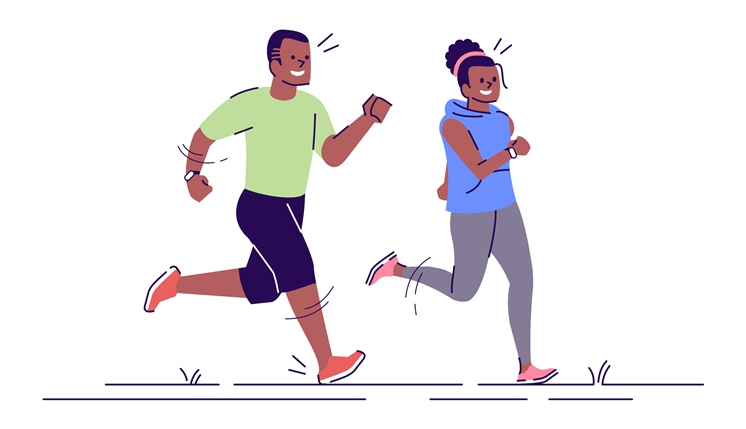
As we all know that how essential to do exercise is for keeping us physically healthy/beautiful. But did you know that exercise can also support keep you mentally healthy/fit?
Study shows that people who exercise frequently have better mental health and inner wellbeing, and less rates of mental disorder.
Taking up exercise seems to decrease the risk of developing mental illness. It also seems to support in treating some mental health requirement, like depression and anxiety. For instance, for moderate depression, study indicate physical exercise can be as efficient as antidepressants or psychological treatments like mental behavioral therapy. Exercise can also a beneficial adding to other treatment options.
Why does exercise make us feel better, mentally?
Constantly, people who exercise often do it simply because it makes them feel good/fresh. Exercise can improve your mood, concentration and attentiveness. It can even support and give you a positive point of view on life.
The connection between exercise and mental health is intricate. Inactivity can be both a cause and an importance of mental illness, for instance. But there are lots of ways that exercise can well-being of your mental health, such as:
- Even of chemicals in the brain, such as serotonin, stress hormones and beta-endorphins, change when you exercise/workout.
- Regular exercise can help you sleep better. And excellent sleep helps you handle your mood.
- Exercise can better your feeling of control, coping skill and self-respect. People who exercise often report how good accomplish a goal makes them feel.
- Exercise can disturb you from negative consideration and give chance to try new skills.
- It provide a chance to associate and get social support if you exercise with others people.
- Exercise increases your energy levels.
- Physical activity can be an outlet for your frustrations.
- Exercise can reduce skeletal muscle tension, which helps you feel more relaxed.
The physical well-being of exercise are also essential for people with mental illness. It enhance your cardiovascular health and general physical health. This is significant because people with mental health issues are at a dangerous of suffering from chronic physical situation such as heart disease, diabetes, arthritis and asthma.
Exercising for your mental health
If regular exercise is not yet a part of your daily routine, you might be curious how much you require to do to give your mental health a enhance.
The really good part is exercise is doesn’t have to be exhausting or take a long while. Studies show low or average power exercise is sufficient to make a contrast in terms of your mood and opinion patterns.
Australia’s physical activity and sedentary guidelines commend adults should be active most days, objective plan for a total of 2.5-5 hours of moderate physical activity per week, similarly a brisk walk or swimming. Instead, they suggest getting 1.25-2.5 hours of effective physical activity per week - such as jogging, fast cycling, or a Group sport. Or, you can relate both moderate and healthy activities.
However, any exercise is better than none. Going for a gentle walk, or activities like stretching and yoga, can also have many advantage on your mind and body. Even doing housework like sweeping, wiping, or cleaning can give you a moderate work out.
How to get started with exercise
It can be terrifying to start exercising/workout if you haven’t done it in a period, but a plan can support you start and stick with it.
Your new exercise plan has a greater possibility of success if you:
- see your GP or an accredited exercise physiologist before you start, and regularly as you continue your exercise plan
- choose an activity you like, or have enjoyed in the past, that suits your fitness levels and abilities
- Start small – build up your activity gradually. Ideally, vary your activities so you don’t get bored
- write your plan in your diary or on your calendar, so it’s part of your schedule
- Regularly revisit your exercise plans, and try something different if it’s not working out for you.
Exercise outdoors
For even greater benefits, try exercising outdoors.
Some latest studies have found people report a higher level of energy, passion, pleasure and self-esteem, and a less level of tension, anxiety, depression and fatigue, after they have walked outside. People who exercise farther also say they are more probable to exercise again than those who stay indoors.
And, people who exercise/workout outside do it more frequently, and for longer, than those who work out indoors.
How to be more active every day
Make exercise part of your everyday activity. Try walking or cycling rather than of using the car. Get off a tram, train or bus a stop timely and walk the rest of the way. Or expend some time walking your kids to school. Get energetic around the house by doing some horticulture, washing the car or cleaning the windows.
Australia’s physical activity and sedentary guidelines can give you more information. The essential thing to remind is to try to moving more and sit less day-to-day.
SALONI BHATNAGAR
.


